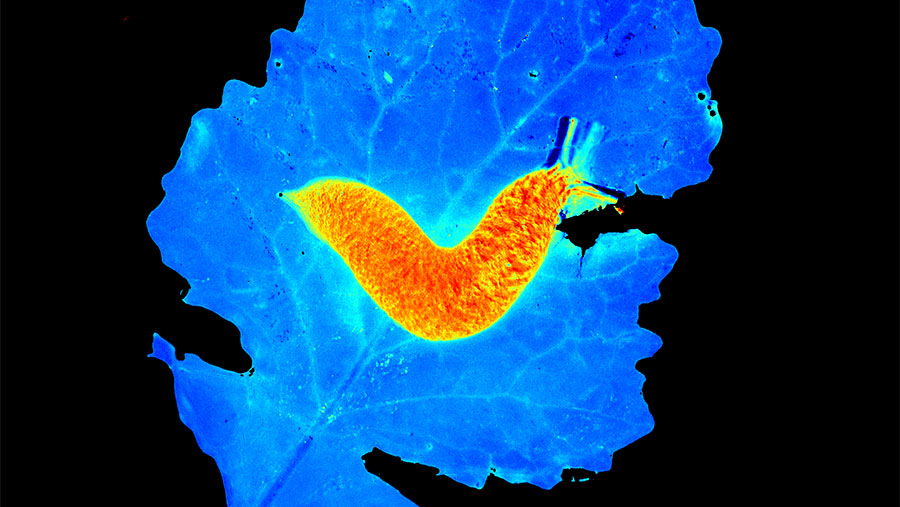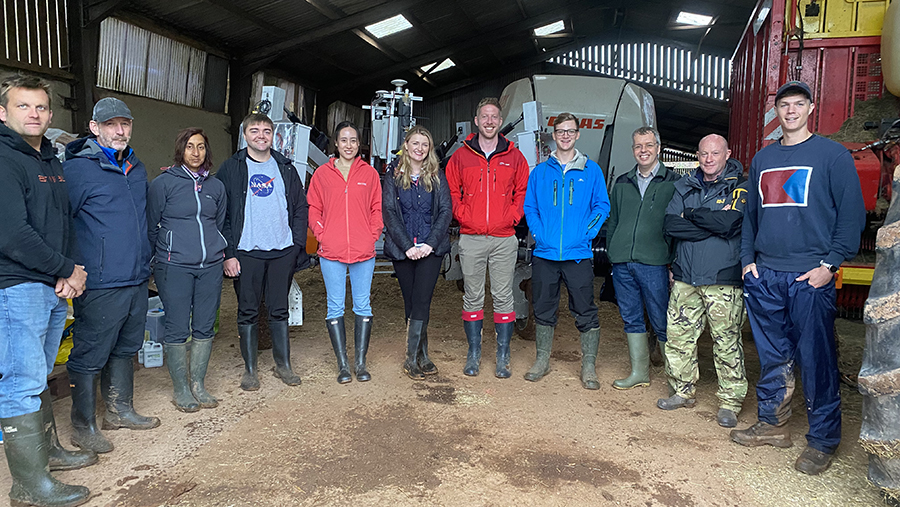Advertiser content
SlugBot – the future of slug control
Autonomous slug monitoring and precision treatment has been proven possible, thanks to game-changing agri-tech collaboration – SlugBot.
Work began in 2020 funded by Innovate UK, bringing together Crop Health and Protection (CHAP), Small Robot Company and farming enterprise AV and N Lee, to explore a new cost-effective and environmentally-friendly way to control the pest.
Now at its conclusion, the project has demonstrated the impact of combining improved monitoring with non-synthetic treatments, to unlock the future of slug control.
The slug challenge
Slugs are a serious crop pest in both agricultural and horticultural crops worldwide. A study by the AHDB concluded that failure to control slugs could cost UK agriculture more than £100M per year.
Current control strategies have relied on chemical molluscicide pellets, containing either metaldehyde or iron (ferric) phosphate.
However, there have been concerns over the use of metaldehyde due to its impact on non-target organisms resulting in its subsequent ban in the UK.
CHAP’s Dr Jenna Ross OBE led the project. She said: “The metaldehyde ban meant it was especially timely to look beyond the existing crop protection toolbox, to more innovative solutions such as nematode-based bio-molluscicides, which is a particular passion area for me as a nematologist.
“But despite effectiveness, bio-molluscicides are expensive, so we needed to find a way to make them more cost-effective.
“SlugBot investigated that conundrum and answers, can we improve monitoring to know exactly where slugs are located in a field, and then spot apply biologicals to reduce the amount required, and therefore cost? Excitingly, we’ve shown that it soon could be reality.”
Three-phase approach
The project was delivered in three phases, combining a range of expertise across malacology (molluscs), nematology, biological control, crop protection, machine learning, artificial intelligence (AI), multispectral imaging and spraying technology.
Stage one included slug collection, imaging at the CHAP and Rothamsted Research Digital Phenotyping Lab, and development of an AI model.
More than 1600 slugs were collected focusing on two species – the grey field slug and the Spanish slug. Image data was collected across a wide range of enivronments and scenarios to help feed and train the AI model.
For stage two, slug mapping capabilities were trialled in glasshouse and field conditions, using Small Robot Company’s ‘Tom’ robot.
This also included on-farm testing with James Lee of AV and N Lee in Devon, trialling Tom’s ability to take images and upload them for processing and identification, to then trigger the spray application.
Finally, stage three focussed on developing the precision spraying capabilities of the robot, and trialing it’s use with a biological control agent.
A one-metre boom was developed, adapted from a conventional spraying system, with the final protoype capable of spraying 20x20cm
Future potential
SlugBot has proven the potential of autonomous monitoring and precision application within broadacre arable crops. Now established, the platform has the potential to be built on with additional data, as well as being adapted with new data sets to target a wide range of weeds, pests and diseases.
Dr Ross added: “What began as an idea from my Nuffield Farming travels soon snowballed into what has become a ground-breaking research project.
“Failure to control slugs has a huge impact on the agricultural and horticultural industries in both the UK and overseas, but now we have a solution that could have a significant impact with regards to net zero and sustainability. SlugBot has really pushed the boundaries for what is possible.”
Industry collaboration
CHAP is an independent not-for-profit organisation that specialises in bringing together industry stakeholders to collaborate and find innovative solutions to UK and global food chain issues.
As well as project partners Small Robot Company and AV & Lee, the CHAP team was joined by experts from Rothamsted Research, who provided phenotyping expertise and data analyses.
CHAP is currently working on a wide range of game-changing projects, with more in the pipeline. To instigate a new collaboration, e-mail enquiries@chap-solutions.co.uk or visit chap-solutions.co.uk to view more project examples.
Provided by
CHAP is one of the four UK Agri-Tech Centres of Innovation. We bring together scientists, farmers, advisors, and pioneers to advance crop productivity and yield in the UK and beyond.


